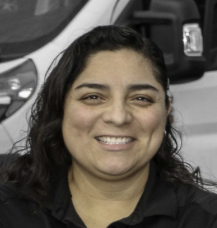At 360 Hazardous Cleanup, we know that restoring a property after a traumatic event is only one part of the healing process. Our work doesn’t stop at disinfecting surfaces or removing hazardous materials—because families, property managers, and communities impacted by tragedies like suicide, homicide, or unattended deaths need more than just technical solutions. They also need emotional care, mental health resources, and compassionate support to navigate the aftermath.
That’s why 360 actively collaborates with mental health providers, crisis counselors, and community support organizations. Together, we ensure that families don’t just have safe homes to return to, but also the emotional and psychological support systems they need to heal.
In this blog, we’ll explore how these collaborations work, why they’re so important, and what it means for the families we serve.
Beyond Cleanup: The Human Side of Traumatic Events
Trauma scenes affect more than the physical environment—they affect the heart of a family and the fabric of a community. After a suicide, violent crime, or unattended death, loved ones are often left in shock, grief, or crisis.
While our technicians are highly trained to handle hazardous materials safely, we also recognize that families are dealing with a deeply emotional burden. We often see firsthand the signs of grief, anxiety, or overwhelm in the people we serve. That’s why our role is not only to clean but also to connect families with trusted mental health and crisis support resources who can guide them through recovery.
Why Partnerships with Mental Health Organizations Matter
The trauma of losing someone suddenly—or discovering the aftermath of a tragedy—can have lasting effects if not addressed. Collaborating with mental health professionals ensures:
- Immediate Support:Families can access crisis hotlines or counselors right when they need them most.
- Professional Guidance:Licensed therapists and crisis responders provide the coping strategies our technicians are not trained to offer.
- Holistic Healing:Physical cleanup and emotional care go hand-in-hand to help families regain stability.
- Long-Term Resources:Many organizations offer ongoing grief counseling, support groups, and referrals that extend beyond the initial crisis.
By building bridges between our services and these organizations, 360 helps create a comprehensive circle of care.
How 360 Builds These Collaborations
1. Referrals to Crisis Hotlines
After a traumatic incident, families are often unsure of who to call for emotional help. We partner with local and national crisis hotlines—including suicide prevention lines and trauma response centers—so we can provide families with immediate access to support.
2. Connecting with Grief Counselors
We maintain relationships with licensed grief counselors and therapists in the communities we serve. When families are ready, we connect them directly with professionals who can guide them through the grieving process.
3. Community Resource Networks
360 participates in community coalitions that include law enforcement, victim advocacy groups, and nonprofit mental health organizations. These networks ensure we always have up-to-date referrals and resources for families in need.
4. Training Our Teams in Trauma Awareness
While our technicians are not mental health counselors, we train them in trauma-informed practices—such as working quietly, respectfully, and with compassion. We also train our team to recognize when families may benefit from professional emotional support and how to connect them with the right organizations.
5. Partnering with Faith-Based and Nonprofit Organizations
For many families, healing involves spiritual as well as emotional support. We collaborate with churches, nonprofits, and community outreach groups that provide comfort, meals, or counseling to families during their time of need.
Real-World Scenarios Where Collaboration Matters
After a Suicide
A family calls 360 to clean their loved one’s home after a suicide. While our team begins the cleanup process, we also provide the family with direct referrals to local grief support groups and national suicide prevention hotlines. This connection helps them begin emotional recovery as we restore the physical environment.
Violent Crime Scenes
In crime-related incidents, survivors often face trauma, fear, and uncertainty. In addition to working alongside law enforcement, 360 Hazardous connects property owners and family members with victim advocacy programs that offer counseling and legal support.
Unattended Deaths
Discovering a loved one who passed away alone can be shocking and deeply distressing. Beyond the physical cleanup, our partnerships with mental health providers ensure families have access to counseling services that help them process the loss.
Benefits for Families and Communities
Our collaborations with mental health and crisis support organizations provide benefits that extend far beyond the immediate cleanup:
- Faster Emotional Recovery– Families receive support at the earliest stages of grief, reducing the risk of prolonged trauma.
- Reduced Isolation– Crisis lines, support groups, and counselors help families feel less alone in their pain.
- Holistic Safety– Both the home and the family’s emotional health are addressed, creating a safer path forward.
- Community Strength– By linking professional services with community organizations, we build stronger, more resilient neighborhoods.
A Compassion-First Approach
At 360, we view our role as part of a larger ecosystem of care. While we are experts in decontamination and restoration, we never lose sight of the human beings at the center of each situation. Every cleanup call represents a family in crisis—and every family deserves more than a technical solution.
By collaborating with mental health organizations, we can help families transition from chaos to stability with compassion, dignity, and respect.
Biohazard cleanup is only one step in the recovery process after tragedy. Emotional and psychological healing requires just as much attention as physical remediation. That’s why 360 partners closely with mental health and crisis support organizations—to provide families with access to the resources they need most during life’s hardest moments.
Through these collaborations, we ensure families are not left to navigate grief and trauma alone. Instead, they’re supported by a network of professionals, advocates, and counselors who walk alongside them on the journey to healing.
At 360, our mission goes beyond cleanup—it’s about caring for people. By working together with mental health providers, we help families find not only a safe home, but also a path forward.

